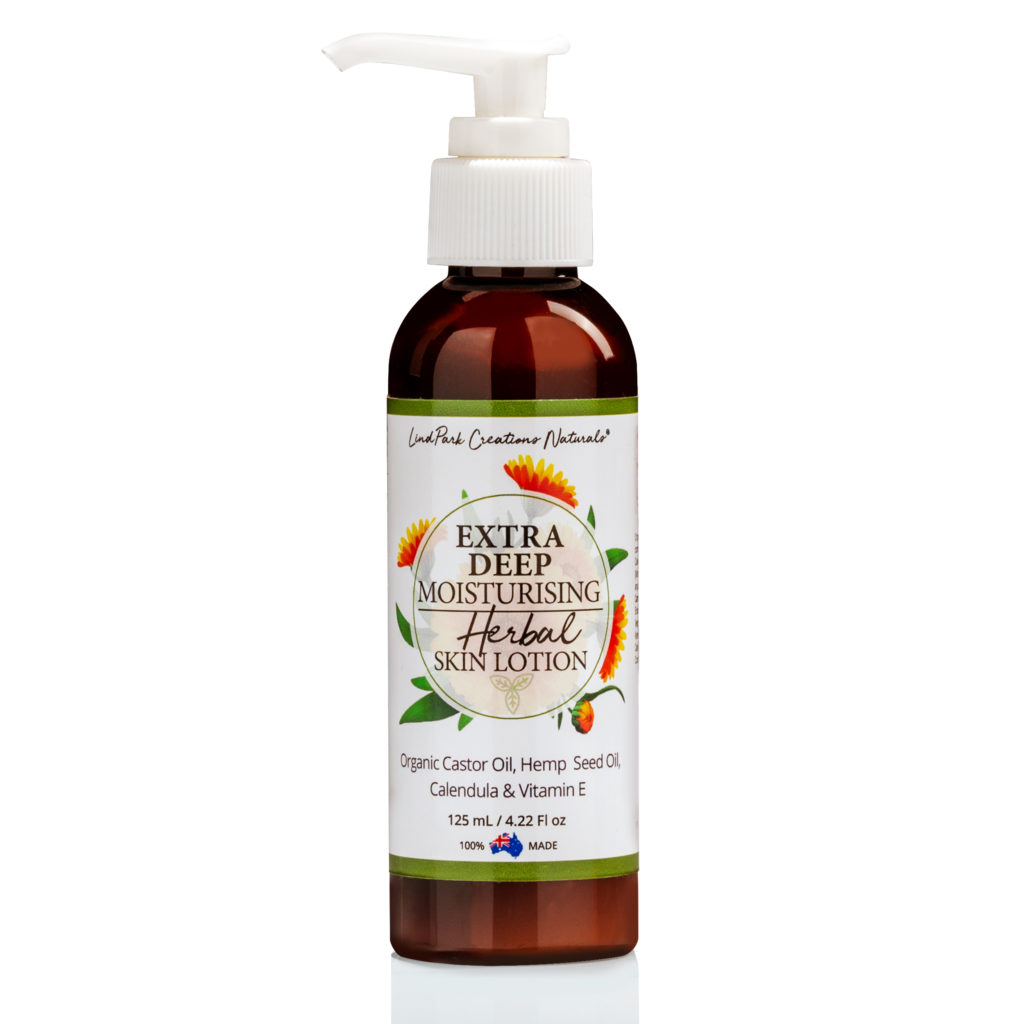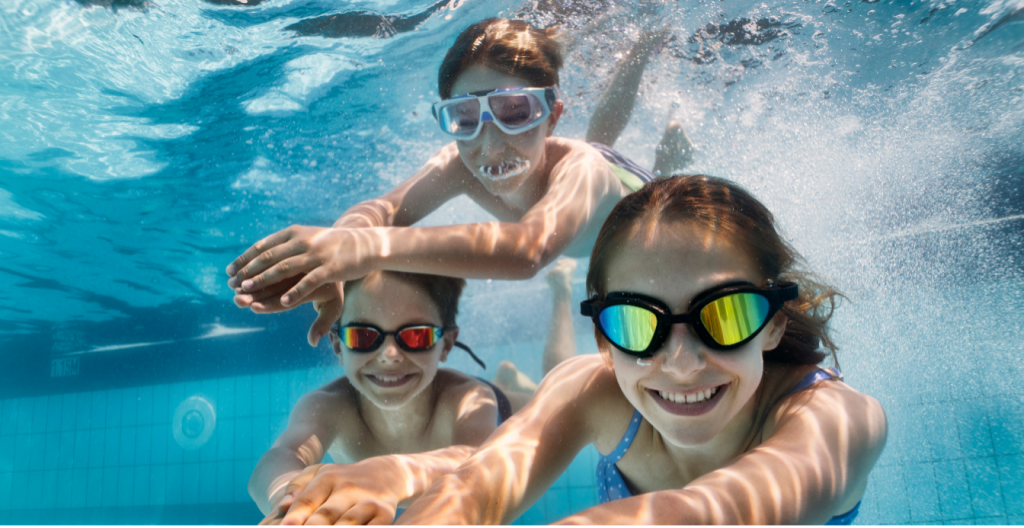It’s December here in Australia, which means hot summer days cooled down by the pool!
We all love swimming in the summertime, but if you suffer with eczema or sensitive skin, it can be tough to find a pool that won’t leave your skin feeling dry and itchy.
Chlorinated pools are notorious for wreaking havoc on sensitive skin, while mineral pools are thought to be much gentler.
So, which is the better option for keeping your skin soft, smooth and happy this summer? Read on to find out!
What Is Chlorine and Its Purpose?
Chlorine is a chemical element, most commonly used in the preparation of disinfecting water. It’s described in the dictionary as a “toxic, irritant, pale green gas” but comes in the form of liquid, powder, or tablets for the use in pools. Once the chlorine comes in contact with the water, it forms hydrochloric
acid, which then kills off all of the bacteria and unwanted microbes floating around. Bleach, is also made up of chlorine… and we all know how strong and toxic bleach is to the human body.
What About Magnesium Mineral Pools?
A mineral pool uses blends of magnesium, potassium, sodium chloride and borates as a less aggressive way to sanitize the water. The minerals allow a gentle way of disinfecting the water to ensure a safe swimming environment for the body.
Skin Problems and Conventional Chlorine Swimming Pools
Did you know your body can absorb up to 500mls of water every 1 hour you spend in the pool? That could mean a whole lot of toxic overload to your body if you’re someone who’s sensitive to chemicals (and that’s most humans)! The human body is not designed to soak in bleach.
Every summer, I see an increase of flare ups in people with skin conditions like eczema, dermatitis, and psoriasis. Not to mention overly dry, itchy skin from the constant exposure to harsh chemicals (chlorine, we’re looking at you)!
Children return to swimming lessons and as the weather warms up, people are jumping in the pool to cool down almost daily, meaning a high level of exposure to known irritants. They just expect the stinging eyes, itchy skin and other symptoms to be a side effect of keeping their pools clean and sanitary.
Although chlorine does play an important role in killing off bacteria, viruses and microbes in the water as well as preventing it from turning that wonderful murky green… is it worth the toxic side effects of asthma, eczema, dryness, burning, stinging and other skin irritations left in the aftermath?
Let’s review the BENEFITS versus the RISKS of using a Chlorinated pool compared to a Magnesium/Mineral pool:
| RISKS ❌ and BENEFITS ✅ | CHLORINATED POOLS | MAGNESIUM MINERAL POOLS |
| Strong damaging chemical smell | ❌ | |
| May damage or fade poolside furniture | ❌ | ❌ |
| Requires close monitoring of chemical levels. Too little won’t be effective and too much can leave chemical burns to the skin | ❌ | |
| Simple means to disinfecting pool water | ✅ | ✅ |
| May cause a multitude of skin and respiratory conditions caused by chloramines eg eczema, asthma or dermatitis | ❌ | |
| Safe for all ages to swim in, with minimal to zero reactions | ❌ | ✅ |
| Cost efficiency overall slightly differs | ✅ | ❌ |
| Leaves the skin feeling soft and muscles relaxed | ❌ | ✅ |
| No sticky feeling left on the skin and no odour remains on the skin after showering, no need for a shower after swimming to wash off water | ❌ | ✅ |
| Beauty benefits to the skin eg moisturization, softer hair, greater skin elasticity, reduces the size of the pores leaving skin smoother | ❌ | ✅ |
| Eases sore muscles | ❌ | ✅ |
| Contains trace minerals such as magnesium, potassium, sodium and boron | ❌ | ✅ |
| No irritation to the eyes | ❌ | ✅ |
| Helps to detoxify the skin and body | ❌ | ✅ |
| Helps improve sleep | ❌ | ✅ |
| Relieves stress | ❌ | ✅ |
Magnesium Pool Benefits
So, it seems the healthier alternative to chlorinated pools is Magnesium Pools – but what are the benefits of these minerals for your health and skin?
Magnesium chloride is known for many benefits when absorbed through the skin. Magnesium is a detoxifying anti-inflammatory agent, which smooths the water and softens skin. It restores skin elasticity, as well as moisture to help with dryness and inflammation. It helps relax the nervous system and helps the body absorb calcium, keeping your teeth and bones nice and strong!
Potassium is another important mineral, essential to the functioning of several body organs. When combined with magnesium, it will aid the detoxification process in your body!
Sodium chloride (salt) also aids in detoxification, but also has a relaxing effect. This in turn can affect the immune, nervous and lymphatic systems in a very positive way every time you take a dip. Salt sterilizes and destroys bacteria and fungus in the water.
Borates are crystallised salts that contain the mineral boron. This helps to prevent the stinging eyes and dry itchy skin, as well as enhancing the comfort level while swimming by making the water silky smooth.
What If Chlorinated Pools Are My Only Option?
If you find that a mineral pool isn’t accessible to you right now and chlorinated is your only option, then keeping your skin protected and moisturised is key to avoiding eczema flare ups and dry, itchy skin.
Our Extra deep Moisturising Skin lotion contains everything to keep your skin hydrated and soft, as well as providing that healing benefits with ingredients such as organic castor oil, hemp seed oil, calendula, and vitamin E.
Apply this lotion across your whole body 2-3 times a day and right after swimming once the chlorine is washed off your skin for optimal hydration.

So What’s the Verdict?
Are chlorinated pools better for your health and skin? In short, no.
Chlorine is a harsh toxic chemical that can cause skin and lung irritations.
Magnesium mineral pools are gentler on both your body and skin, making them the better choice for those with sensitive skin or allergies.
If you’re looking for a pool that will make you feel relaxed, refreshed and leave your skin feeling soft rather than itchy and raw, swim in a mineral pool every time!

